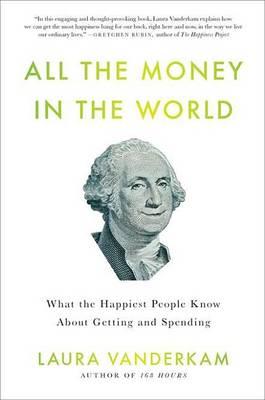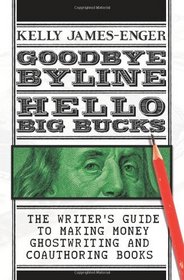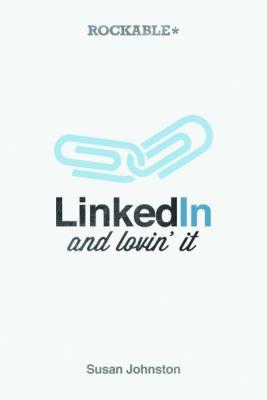Taking Stock of the Books That Brought Me Here
3
So You’re a Freelancer. Do You Still Need a Resume?
10
The Freelance Writing Book That Will Take You From Small Potatoes to Professional
23
How To Achieve Full-Time Success with Part-Time Hours
8
How to Make Your Marketing Copy POP!
6
 Despite being a writer — and a writer who once worked her way up the corporate ladder in the marketing department of an academic book publisher, no less — writing effective marketing copy for my own small business is still a struggle for me.
Despite being a writer — and a writer who once worked her way up the corporate ladder in the marketing department of an academic book publisher, no less — writing effective marketing copy for my own small business is still a struggle for me.
Because of this, I’ve spent a lot of time poring through business books and marketing how-tos, and even took one of Dave Navarro‘s workshops in order to revamp the sales page for my career coaching business.
My latest read? Sam Horn’s POP! Create the Perfect Pitch, Title, and Tagline for Anything. A marketing book written to help readers connect with customers, it’s not just about marketing — it’s about branding as a whole.
I was skeptical about this book when, within the first 40 pages, Horn held up both the Daddle and the Smitten as examples of fantastic branding. After all, both products are pretty ridiculous, and people regularly make fun of them. (Check out the Amazon reviews for the Daddle. Absolute comedy gold.) Could I really take advice from someone whose paragons of branding were so corny?
But as I read on, I realized that Horn was actually pretty brilliant.
Are you struggling with your own marketing copy? Each chapter in POP! focuses on a different content marketing technique. And while you probably won’t use every single marketing tactic in your own marketing content, trying out even one or two could set your product or service apart from the competition.
For example, if I wanted to more effectively promote my ghostwriting services to sexual health professionals, I could use the Valley Girl Technique to find something in pop culture that my service is “like” (get it?), and play around until I came up with something like: Steph Auteri: The Sex Whisperer, or Steph Auteri, the Shrink Whisperer*. (Shut up. It’s a work in progress.)
Or if I wanted to publicize a Word Nerd Networking event, I could simultaneously use the Alphabetizing Technique and the Juxtaposing Points Technique and write something like:
“Introverts — Come out for an evening of speed networking! Because we’ve eliminated the pressure of approaching new people, you can spend your time effectively networking instead of fretworking (and — later — regretworking).”
Okay, yes. It’s lame as hell. It’s not quite there yet. But you get what I’m saying…
Luckily, as I made my way through Horn’s book, I realized I had been using some of her techniques without even realizing it. Take the name Word Nerd Networking, for example. It contains both a rhyme and alliteration… a POP! double whammy.
Also, Sex Play for Prudes, the working title for my book. It contains alliteration (I heart alliteration), and also juxtaposes two concepts you’d assume wouldn’t typically go together: sex play and prudes.
Horn also suggests using first-person stories to maintain people’s interest. This is something that comes naturally to me, as I’m your typical, narcissistic personal essay writer. ![]()
These are only a smattering of the techniques Horn showcases in her book. I suggest you pick up a copy if you want to know the rest. Because while some techniques may lead to something so corny you can’t stand yourself (Fretworking? I know. I hate me, too.), others may carry you to branding victory.
*I’m totally using this one.
Related: How to Increase Your Chances of Landing That Book Deal, Even Coaches Need Coaches: 4 Experts I Love to Bits
Why You Should Change Your Definition of Success
13
 I started freelancing full-time almost five years ago. At the time, success meant matching my previous income, and saying yes to every project that came my way. As a result, I found myself working nights and weekends, skipping meals, and pushing exercise to the very bottom of my to-do list, where it never got done.
I started freelancing full-time almost five years ago. At the time, success meant matching my previous income, and saying yes to every project that came my way. As a result, I found myself working nights and weekends, skipping meals, and pushing exercise to the very bottom of my to-do list, where it never got done.
These days, success means being pickier about projects, preparing home-cooked meals with my husband, and having time for both my personal book project and my daily yoga classes. I have the potential to make more money… but the other stuff comes first.
Which is why I love Laura Vanderkam‘s work. In both 168 Hours and her most recent book, All the Money in the World, she shows readers that they don’t necessarily need more time or money to achieve a successful and fulfilling life. They just need to know how to spend what they already have.
In this Q+A, Laura shows us how we should redefine success.
1. I went on a sort of Laura Vanderkam reading marathon last week. What I noticed immediately about both your books is that they eschew the typical self-help trope of promising more (more money, more time) to the reader. Rather, you stress in both books that, generally, we have enough. We just need to learn how to spend both our time and our money more wisely, rather than cutting back on things we enjoy as a means of grabbing 15 minutes here, $100 there. How did you come to this somewhat contrary conclusion?
I highly recommend Laura Vanderkam reading marathons. I’ve got some novels stuffed in a drawer that you can read as well…
To answer your question, with time that insight came from looking at successful people. I’m talking about people who have big careers and big personal lives. These people have the exact same amount of time as the rest of us, so what are they doing differently?
In some cases, these people do have more money, but plenty of people with money somehow manage to spend it on things that make their lives more complicated, rather than less. If you start with a blank slate, rather than various assumptions about how we should be spending our time and money, you’ll soon see that 168 hours a week and an average American income can cover quite a bit. I mean, who cares about spending 10 minutes less on errands if you’re in the wrong job? Then you’re wasting 40 hours a week. Fix that first. Then you can be as inefficient on your errands as you want.
2. I loved 168 Hours. Who doesn’t wish for more time? But when I read the press release for All the Money in the World, I was intrigued, because it hinted at the possibility that you don’t necessarily need to be making more money in order to be considered successful. A prospect I find attractive, as someone who values work/life balance over ever-increasing income. Can you share with us your own, personal definition of success?
My goal is to be able to write about any topic I find interesting for publications I admire and in my own books (and on my blog), and know that my words will find a big audience. Money is part of success — it’s how the market often recognizes talent — but you have to consider it within categories. You can be among the world’s best poets and still earn less than a mediocre investment banker.
3. When did you reach that aha moment where you realized that success didn’t have to mean more money? Was there a specific instance where you had to choose between saying yes to a project or yes to yourself?
In 168 Hours, I write of giving up a fairly well-paying gig with Reader’s Digest. I wrote the Only in America section for years. It was a fabulous way to learn to write tight, and to learn about an incredible diversity of subjects, from a young man who walked every street in Manhattan to the person who holds the world record for the most Guinness World Records. I’m so grateful that they gave me the chance to do that.
But what I eventually realized is that I wanted to be focusing on books and longer, bylined articles, and the mental energy required to write six to eight well-reported short pieces every month was distracting me from that goal. It was a tough gig to walk away from financially, but since my husband gets a steady paycheck, we decided I could take some risks.
4. Even though you suggest that we have enough money/time if we spend it correctly, you do recommend simply making more money rather than cutting back on expenses as a way to improve quality of life. Can you share a specific instance in which you realized you needed an income boost (whether for everyday life or a specific purchase) and hustled like hell to get that extra cash? What tactics did you use to drum up that extra money?
My first year out of college, I had an internship at USA Today. My take-home pay was about $1,200 a month. That was enough to live on, but it wasn’t enough to save for bigger goals, like travel or moving to New York City (something I’d always wanted to do). So I freelanced for a variety of different publications. When you set your expenses based on $1,200 a month, even bringing in an extra $500 is a huge win. And by the end of the year I was bringing in a lot more than that — sometimes tripling my salary. If you’re making $1,200 a month, you can’t save $2,000 a month. If you’re making $4,000 a month, you can. I was able to spend three weeks traveling in Asia after the internship ended, and then have a few months’ cushion for moving to New York without a job lined up.
5. I’m a huge advocate of career diversification, something that freelancers tend to master early on. What does a typical mix of projects look like for you over the course of any given week?
Ideally I’m working on something very long term, like a book. I’ve got a few intermediate assignments: a feature for City Journal or another magazine, a USA Today column. Then there’s the immediate stuff: blogging three times a week for CBS MoneyWatch and keeping my own personal blog (www.lauravanderkam.com). Speeches have become a bigger component of my income over the past few years as well.
6. Finally, what was the most fun/fascinating/challenging project you ever did for the money?
I once ghostwrote a book in less than six weeks. I enjoyed the challenge. If I someday need to scale up my cash flow for big goals, I’d take on two to three crash jobs like that per year.
Related: Do You Love Your Work More Than You Love… Love?, Want Freelance Success? Watch Your Health, Didn’t Get It Done? That’s Your Own Damn Fault, Better Than Money
Why It’s Totally Cool If My Kids Skip College
20
 I have a B.A. in Writing, Literature, and Publishing from Emerson College, despite myself.
I have a B.A. in Writing, Literature, and Publishing from Emerson College, despite myself.
I mean, there was never a question I would go to college. After all, it never occurred to me that any other path was available.
But I started out studying journalism at the College of New Jersey. I became disenchanted and discouraged by my choice of major. I fell into a depression after both the death of my grandmother and the end of an abusive relationship. I dropped out of college with the certainty that I didn’t need it to be a writer.
Which was true, but I wasn’t sure how to go about making money. I ended up in a crappy retail job, at which I lasted for two months. Is this all I’m capable of without a degree? I asked myself, horrified. It wasn’t, but I didn’t know that. I ended up at Emerson.
After graduating, I was lucky enough to get a job within two months (though not in my field). I was miserable there, and felt relief when I was laid off after six months. A year later, I had my feet planted firmly within the publishing industry. Finally. I was content… for awhile. But I soon realized I had no interest in working my way up the corporate ladder. I wanted to create. I wanted to be my own boss.
And so I made my circuitous way to the here and now, where I’m a happy, and pretty well-balanced, business owner. I’m lucky enough to be one of the few people out there who has ended up making money in the field they studied in college. But I could have gotten here quicker. I could have gotten here without incurring debt. I just didn’t know.
Last weekend, I toted my copy of Michael Ellsberg’s The Education of Millionaires to my yoga/cooking retreat up in VT, where I devoured it during the free time I had between yoga and cooking classes. As I read, I found myself giving a silent hells yeah as Ellsberg gave voice to something I had always felt when it comes to academia.
“Despite sixteen years or more of schooling,” he writes, “most of what you’ll need to learn to be successful you’ll have to learn on your own, outside of school, whether you go to college or not.” He goes on to describe a scene that’s decidedly familiar these days:
“We now live in an age when it is likely that the person pouring you your coffee at the cafe in the morning has spent four years studying literature, or even business and marketing, in a degree-granting institution. That person is likely to be carrying tens of thousands of dollars in student debt, and more in credit card debt accrued in college, for the privilege of having studied to pour you your coffee with such literary and business acumen.”
I thought of my time on unemployment. A full year. I thought of how humiliated I had been to stoop to temp work, handing out food samples at donut shops and supermarkets. I thought of how my life might have been different if I’d aimed for entrepreneurship rather than employment. But the possibility had never occurred to me. That only came later.
Ellsberg goes on to advocate self-education over academia — a pursuit I’ve come to advocate heavily in the past five or so years –providing readers with a resource-heavy curriculum in the areas of networking, marketing, sales, and entrepreneurship. At the end, he describes the “education bubble,” exploring further why a single-minded reliance on academia may cause the bubble to eventually burst.
At the end, I’m both inspired and introspective. I feel validated. I think to myself: College and the corporate ladder aren’t the only options. and my future children will know that, and will be supported in whichever path they choose.
I enjoyed my time at Emerson. I developed as a person, and met people there who are still incredibly important to me.
But did college hold me back? Would I be even more successful now if I’d gotten an earlier start on the entrepreneurial path?
I’ve learned more in the past five years than I ever learned in the previous 26. This much is true.
What will you tell your children?
Related: Forget Grad School. Is Your B.A. Worth It?, Coffee Break: Home Ec for Entrepreneurs, Passive/Aggressive: Finding Work as a Freelancer



